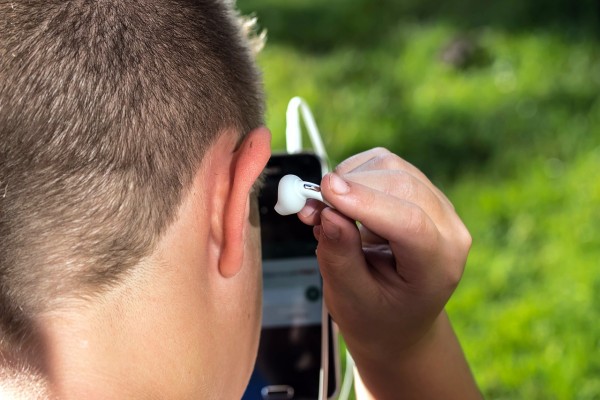Having Exaggerated Emotional Reaction To Daily Sounds That Don’t Seem Bothersome To Others? You Might Have Misophonia
Imagine this scenario: certain everyday sounds trigger exaggerated emotional reactions in you but do not appear to bother anyone else. What you're going through might be a condition called 'misophonia,' a strong hatred of particular sounds.
Misophonia is a type of disorder in which some sounds activate emotional or psychological responses that some people might consider unreasonable given the circumstances.
People with this condition might describe it as a sound that drives them crazy. Their reactions can range from anger and aggravation to panic and the need to escape. Sometimes, the condition is also known as "selective sound sensitivity syndrome."
People with misophonia frequently say they are stimulated by oral sounds, the noise a person makes when they're eating, breathing, or even chewing.
Other negative sounds include finger tapping on the keyboard or the sound coming from windshield wipers.
In a similar way, individuals suffering from this condition also report that they frequently react "to the visual stimuli" that goes with sounds and may respond intensely too, to repetitive motions.
ALSO READ: 5 Things You Should Not Do To Achieve Better Sleep

Wearing earplugs and headsets for one with misophonia will help tune out sounds around him.
Symptoms of Misophonia
Scientists believe that people with misophonia may have issues already with the manner their brains are filtering sounds and that one of the features of the so-called "misophonic sounds" maybe their monotonous and repetitive noise.
That repetition then intensifies other problems of auditory processing. Moreover, the disorder seems to range from mild to severe.
Those who report a range of "physiologic and emotional responses" along with associated cognitions. One who has a mild reaction may feel uncomfortable, anxious, disgust, and the urge to escape.
For individuals with severe reactions, the sound they hear might result in hatred, panic, rage, anger, fear, and emotional distress.
Causes of the Disorder
The age of the beginning of this lifelong disorder remains unknown, although some people say they experience symptoms from ages 9 to 13 years old.
Misophonia is more typical with girls and occurs quickly, although it does not seem to be linked to any individual event.
Reports on the condition said, doctors are unsure what causes misophonia, although it is not an issue with the ears. However, they think it is partly mental and partly physical.
Misophonia, according to experts, could be associated with how sound is affecting the brain and triggering "automatic response in the body."
Frequently, doctors are not aware of the condition, and there is no common agreement in terms of its classification. The condition seems to take place on its own and also along with other developmental, psychiatric, and health issues.
Meanwhile, breakthrough research found that "misophonia is a brain-based" disease. Study authors emphasized a disruption in the connectivity of the brain parts, the process both sound stimulation, as well as the flight or fight response.
DON'T MISS THIS: Why Stress Makes One Overeat or Not Eat at All, and How to Overcome It
Treating Misophonia
Treating the condition frequently engages a multidisciplinary method that combines sound therapy by audiologists and supportive counseling in which there is an emphasis on coping strategies.
Some patients try a device such as a hearing aid that creates a sound in their ear that's similar to a waterfall. The noise then distracts them from triggers and decreases reactions. Other patients go through talk therapy.
If you are suffering from the condition and haven't figured out how to deal with the syndrome yet, it is important to know that your lifestyle plays a role.
Exercise regularly, get adequate sleep, and manage your sleep. Wearing earplugs and headsets will also help tune out sounds around you.
IN CASE YOU MISSED IT: Is Excessive Exercise Linked to Eating Disorders? Here's What Studies Say
Check out more news and information on Misophonia on MD News Daily.
Nov 12, 2020 08:00 AM EST





